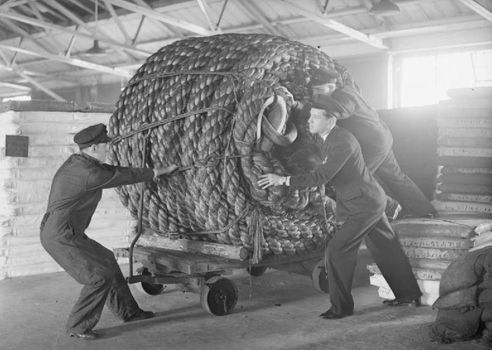Reading time: Less than 1 minute
Increase your vocabulary and you’ll make your writing much more precise. That’s why I provide a word of the week. Today’s word: hawser…
As a longtime fan of the English writer Julian Barnes, I gave a little squeal of joy when my husband picked up a 1989 book of his at a library sale. Even better, I hadn’t yet read it.
A History of the World in 10½ Chapters is a revisionist account of history, starting with Noah’s ark. It encompasses the stories of a cruise ship hijacked by terrorists and of woodworms tried for blasphemy in sixteenth-century France.
This delightful book also gave me my word of the week, hawser. Here is how Barnes used the term:
In the morning all that trailed behind Noah’s flagship was a length of fat hawser which had been gnawed through by something with sharp incisors and an ability to cling to wet ropes.
Hawser is a nautical word for a thick cable or rope used in mooring or towing a ship. (See photo, above.) Use of the word peaked in the year 1900.
The etymology of the word can be traced back to the late 13th century and comes from the Anglo-French word haucer, which, in turn, comes from Old French halcier, haucier, literally meaning “hoister.” The English spelling resulted from what’s thought to be a mistaken association with the word hawse and perhaps haul.
A hawser passes through a hawsehole, also known as a cat hole. The word hawse originates from either Old English or Old Norse hals, meaning “part of a ship’s prow,” or, literally the “neck.”
An earlier version of this post first appeared on my blog on July 31/19.


